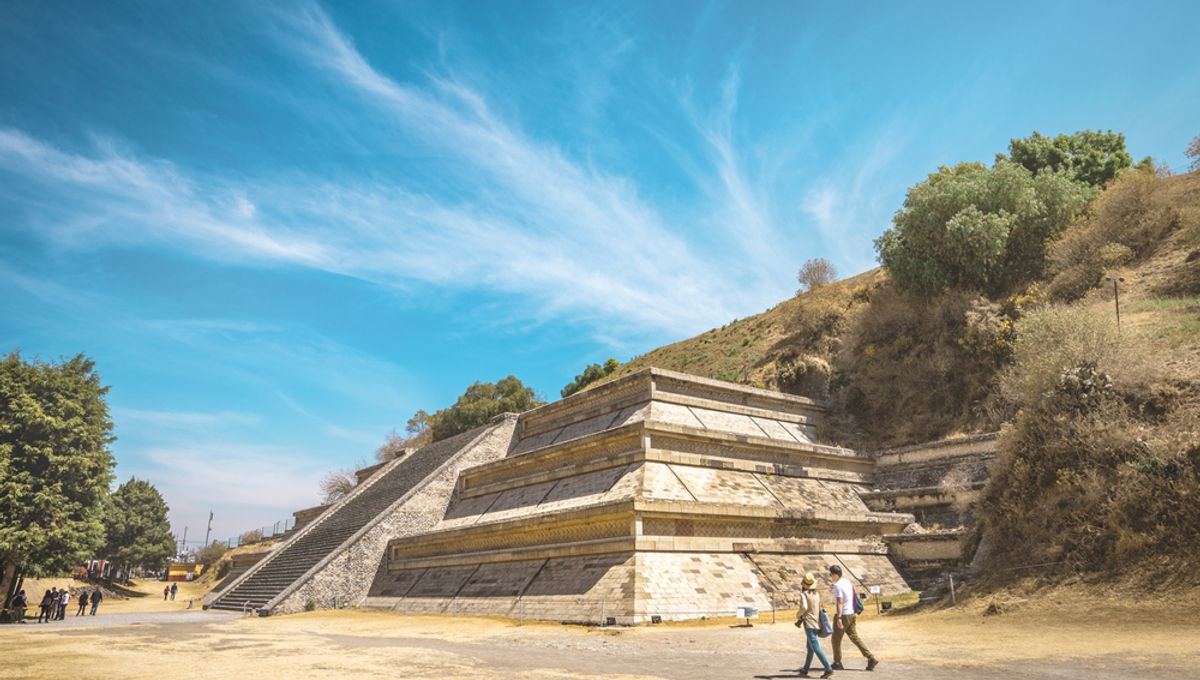
On the face of it, internet conspiracies may seem trivial or just something else to roll our eyes at, but underneath it all is a harsh current that is gradually eroding trust in science and established research practices. That’s the point made by Mark Aldenderfer, a professor of anthropology, archaeologist, and Deputy Editor of Science Advances, in a new editorial aimed at challenging individuals like Graham Hancock who circulate misinformation about archaeology.
Graham Hancock is a well know controversial figure. To self-proclaimed “free thinkers” and conspiracy connoisseurs, he is a brave champion pushing alternative ideas, but to established academics, scientists, and researchers, he is a dangerous peddler of bogus beliefs. Hancock, a regular on Joe Rogan’s Joe Rogan Experience, has spent years criticizing what he refers to as “mainstream archaeologists” who, he claims, are actively suppressing alternative interpretations and narratives about our past. In particular, these mainstream researchers are trying to cover up evidence of some ancient super-advanced civilization that once existed on Earth.
In his recent Netflix show, Ancient Apocalypse, which aired in November 2022, Hancock visits various sites, including Mexico, Indonesia, Turkey, and parts of the US, to elaborate on his theory. According to him, the world suffered an ecological disaster after comets hit the Earth about 12,800 years ago. This is a period known as the Younger Dryas. Following these supposed impacts, the world experienced floods and massive temperature drops that helped destroy a hitherto unknown ancient civilization that “mainstream” archaeologists refuse to acknowledge. Apparently, those who survived this chaos went on to spread knowledge and technology to other more primitive human societies which then developed into the ancient civilizations we see in the archaeological record.
Hancock’s ideas are mostly based on pure speculation and a “what if” approach to thinking that he uses to make himself appear credible. In his show, he spends a lot of time pointing out signs he claims back up his theories (though they are not accepted by any actual archaeologists) and complaining about archaeologists who do not take him seriously.
And why would they? Many of his claims not only reject decades of scientific and historical research, but they undermine the whole value of peer-reviewed, objective research.
Archaeologists are not strangers to this type of thinking. For as long as people have been studying the distant past, there have been others who speculate various alternative ideas. However, things are a bit different now. Now we are at a point where misinformation about historical and archaeological interpretation can easily be coupled with more insidious political beliefs. This is what caused Professor Aldenderfer to produce his editorial piece.
“We’ve dealt in archaeology with issues like this for centuries, you know, aliens, giants, you know, whatever,” Professor Aldenderfer told IFLScience. “And, we keep plugging along, but this is a new kind of challenge that I think deserves a little bit more exposure.”
For Aldenderfer, the stakes here are high. It is one thing to propose alternative interpretations of past events, but to do so in a way that consistently chips at the value of and trust in scientific methodologies is dangerous.
“It doesn’t matter if [Hancock] believes it or not. What it is, is the fundamental challenge to how knowledge is created. And that’s the dangerous part of what this guy does, you know?”
Professor Aldenderfer is not alone in these misgivings. Following the release of Ancient Apocalypse last year, The Guardian published an article describing the show as “the most dangerous show on Netflix”. Many other archaeologists and scientists have called it “bunk”, “racist”, “pseudoscience”, and “pseudoarchaeology”.
In his editorial, Aldenderfer points out that the Society for American Archaeology (SAA) even wrote to Netflix to have the so-called “documentary” re-labeled as “science fiction”.
“Hancock and others of this ilk are on the frontline of conservative challenges to scientific and scholarly expertise,2 he writes. “Notable examples of these include assertions that mRNA vaccines used to treat COVID-19 will permanently alter your genome and the denial of the validity of the overwhelming evidence for anthropogenically driven climate warming.”
Increasingly, such conspiratorial claims are finding themselves supported by politicians who, knowingly or not, attach their message to them in order to reach more extreme audiences.
“These controversies in archaeology are simply a microcosm of the rapidly expanding mistrust of hard-won expertise in almost every scientific domain you can think of,” Professor Aldenderfer explains.
Hancock is rarely challenged by established archaeologists and scientists, which has allowed his influence to grow. It is easy to understand why. This is messy business, where many of Hancock’s supporters are prepared to attack any scientists willing to engage with it. Moreover, academia itself rarely incentivizes these experts to take time out of their schedules to set the record straight. It is a challenge that everyone should take seriously, Aldenderfer urges.
“Remember what really matters – Ancient Apocalypse is a not-so-subtle challenge to legitimate scientific research about our collective history – one that has been created primarily to line the pockets of its authors and has little regard for the research about our past, painstakingly recovered by those mainstream archaeologists so handily dismissed by Hancock and his fellow travelers.”
The editorial is published in Science Advances.
Source Link: Graham Hancock's Pseudoarchaeology Is "Dangerous", Says Anthropology Professor